Introduction to South Africa's Political Landscape
With South Africa's elections on the horizon, the political landscape of the nation is brimming with activity. The upcoming elections will see a variety of political parties vying for the favor of the electorate, each with its own distinct history, mission, and vision for the future of the country. From seasoned giants like the African National Congress (ANC) to emerging challengers like the MK Party, the political arena is as vibrant and diverse as the nation itself.
The African National Congress (ANC)
The ANC, Africa's oldest liberation movement, has governed South Africa since the end of apartheid in 1994. For many, the ANC symbolizes the struggle for the emancipation of Black South Africans and the fight for a free and democratic nation. The party’s prominence is rooted in its history, marked by figures like Nelson Mandela, who led the charge against an oppressive regime. However, the ANC’s tenure has been marred by numerous scandals, allegations of corruption, and accusations of mismanagement. These issues have tainted its image and opened up space for opposition parties to challenge its long-held dominance.
The Democratic Alliance (DA)
As South Africa’s official opposition, the DA has steadily increased its voter base since 1999. The party prides itself on an impressive governance record, particularly in the Western Cape, where it leads majority governments. The DA campaigns on a platform of transparency, good governance, and economic competence. Despite its growth, the party has faced criticism, primarily centered around its appeal to a broader, diverse electorate. Nevertheless, the DA remains a formidable force, advocating for policies that they argue will drive economic growth and social cohesion.
Prominent Policies and Leadership
Under its current leadership, the DA promotes a vision of enhancing public services, reducing crime, and fostering a business-friendly environment. The leadership's approach emphasizes accountability and anti-corruption measures, contrasting sharply with the ANC’s troubled record. This stance has garnered substantial support, particularly among urban and suburban voters concerned about economic stability and efficient governance.
The Economic Freedom Fighters (EFF)
The EFF, an offshoot of the ANC, presents itself as a radical alternative, especially for younger voters frustrated with the status quo. Founded by Julius Malema after his expulsion from the ANC, the EFF has grown to become a significant player in South Africa’s political sphere. The party's platform is centered on economic emancipation, calling for the nationalization of mines, land redistribution without compensation, and the dismantling of what it terms 'white monopoly capital.'
A Loud Voice on Controversial Issues
The EFF doesn't shy away from controversy, often leading debates on sensitive topics like land reform and racial inequalities. Its bold, unapologetic approach appeals to many who feel left behind by traditional politics. With an audited membership reportedly over one million strong, the EFF’s influence continues to rise, making it a critical player in the upcoming elections.
The MK Party
The MK Party is one of the newer entrants in the political arena, having gained significant attention after former president Jacob Zuma joined its ranks. Zuma’s presence has catapulted the party from obscurity to prominence, presenting it as a potential disruptor in the election. The MK Party focuses on anti-corruption and socio-economic development, leveraging Zuma's controversial legacy to attract supporters disillusioned with both the ANC and its opposition.
Potential Game Changer
While still relatively new, the MK Party has positioned itself as a serious contender, potentially pulling votes from the ANC’s traditional base. The party’s promises to tackle corruption and improve governance resonate with many voters eager for change, adding yet another layer of complexity to the political dynamics in South Africa.
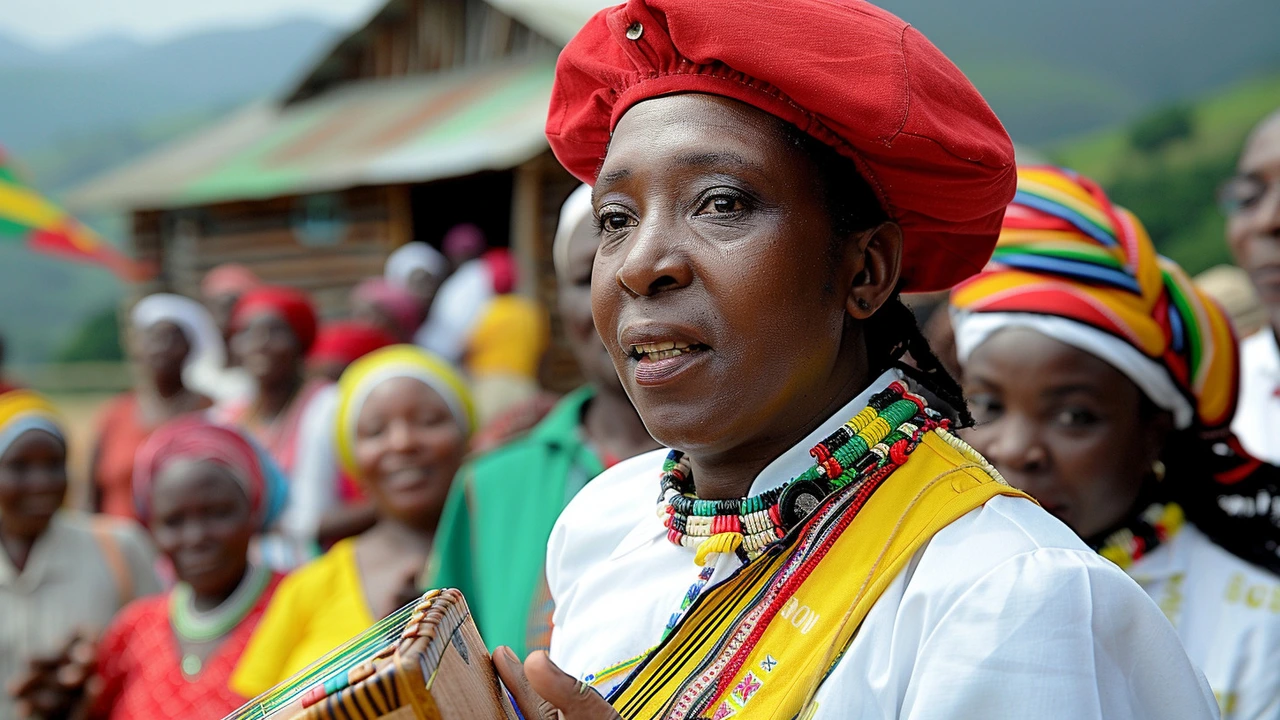
The Inkatha Freedom Party (IFP)
Founded in 1975 by Zulu prince Mangosuthu Buthelezi, the IFP has established itself as a competent party with a robust track record. Historically, the IFP has maintained substantial influence, particularly in KwaZulu-Natal. The party advocates for federalism, economic decentralization, and promoting traditional values within a democratic framework. While its influence has waned in recent years, the IFP remains a stalwart in South African politics.
Focus on Local Governance
The IFP’s focus on local governance and community empowerment distinguishes it from other parties. It argues that empowering local governments can lead to more efficient and responsive public service delivery, catering to the specific needs of communities. This localized approach continues to attract voters who feel neglected by the more centralized policies of larger parties.
Freedom Front Plus (FF Plus)
The Freedom Front Plus primarily represents the interests of Afrikaners and conservative voters. The party champions the preservation of Afrikaner culture and heritage while pushing back against affirmative action policies it views as discriminatory. FF Plus advocates for minority rights, federalism, and self-determination within a united South Africa. Although its support base is relatively small, it remains influential in discussions about minority rights and cultural preservation.
The African Christian Democratic Party (ACDP)
Founded on biblical principles, the ACDP advocates for policies aligned with Christian values. The party’s platform includes promoting family values, opposing abortion, and advocating for religious freedoms. While its focus on Christian values appeals to a specific demographic, its influence on broader national politics is limited. However, the ACDP consistently garners enough support to maintain a presence in the political landscape.
The United Democratic Movement (UDM)
The UDM, a spinoff of the ANC, was established during the early years of South Africa’s democracy. The party’s leadership has focused on good governance, anti-corruption measures, and economic development. While the UDM’s impact on national politics has been modest, it serves as an alternative for voters discontented with both the ANC and the DA. Its emphasis on clean governance and economic rejuvenation continues to resonate with a segment of the electorate.
The GOOD Party
Founded by political veteran Patricia de Lille, the GOOD Party advocates for social justice, economic inclusivity, and anti-corruption. De Lille's experience and credibility have lent the party a degree of legitimacy and attracted voters seeking a break from traditional party politics. The GOOD Party’s platform includes addressing inequalities, enhancing service delivery, and promoting sustainable development.
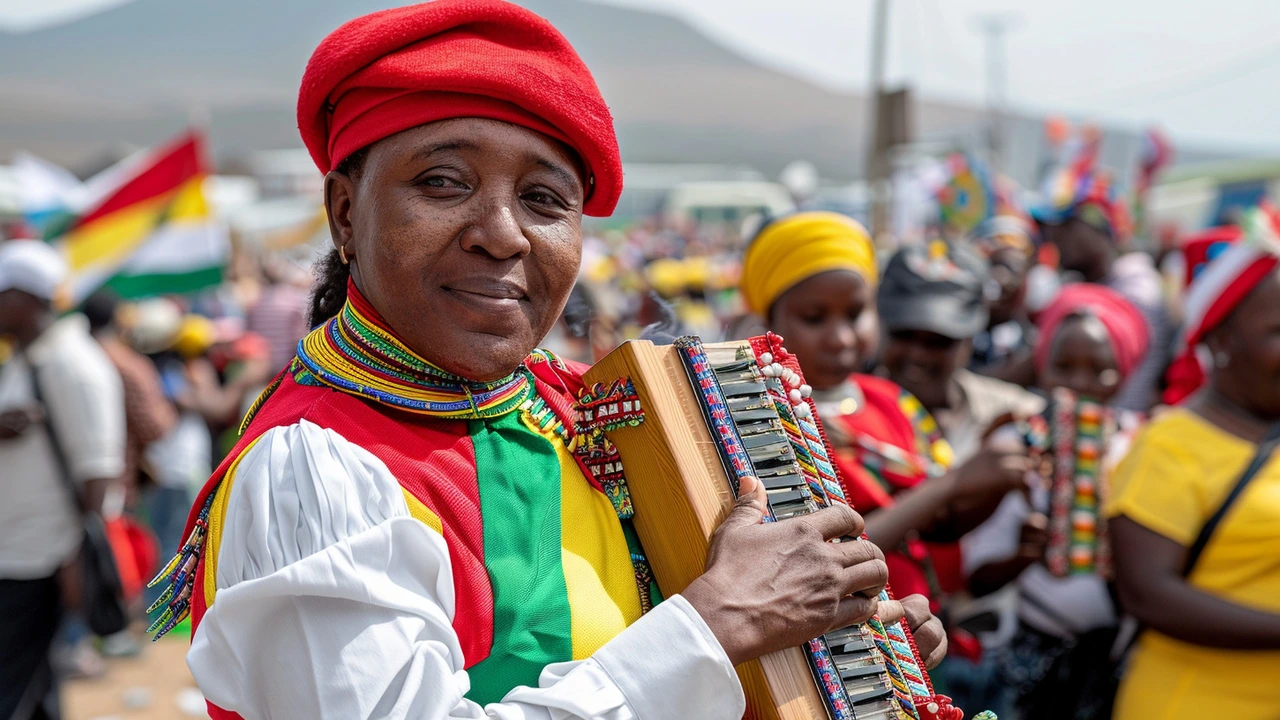
The Pan African Congress (PAC)
Historically significant as the first breakaway from the ANC, the PAC is rooted in the pan-Africanist ideology emphasizing African unity and self-determination. Although its influence has diminished over the years, the PAC remains committed to its foundational principles. It calls for systemic changes to address the socio-economic disparities rooted in South Africa's colonial and apartheid past.
The Patriotic Alliance (PA)
Founded by former convicts Gayton McKenzie and Kenny Kunene, the PA offers a unique narrative of redemption and second chances. The party focuses on issues affecting marginalized communities, such as housing, employment, and crime prevention. Its approach resonates with voters seeking practical solutions to everyday challenges. The PA's leaders leverage their personal stories to connect with disenfranchised voters.
ActionSA
Founded by business tycoon and former Johannesburg Mayor Herman Mashaba, ActionSA positions itself as a party of action and accountability. Mashaba's tenure as mayor was marked by efforts to combat corruption and improve service delivery, and he brings the same vigor to his party’s platform. ActionSA advocates for economic reforms, enhanced public safety, and improved infrastructure. Its pragmatic approach appeals to voters frustrated with bureaucratic inefficiency and corruption.
Build One South Africa (BOSA)
Launched by former DA leader Mmusi Maimane, BOSA aims to unite South Africans across racial and economic divides. The party emphasizes inclusivity, social cohesion, and equitable economic opportunities. Maimane's leadership and vision resonate with voters seeking a unified and progressive national identity. BOSA's platform includes policies to support small businesses, improve education, and promote social equity.
Rise Mzansi
Another participant in the elections, Rise Mzansi, aims to offer a fresh perspective on South Africa’s future. The party’s vision includes economic empowerment, social justice, and sustainable development. While still relatively new, Rise Mzansi seeks to make a mark by addressing the pressing challenges facing South Africa, offering voters a hopeful alternative to traditional party rhetoric.
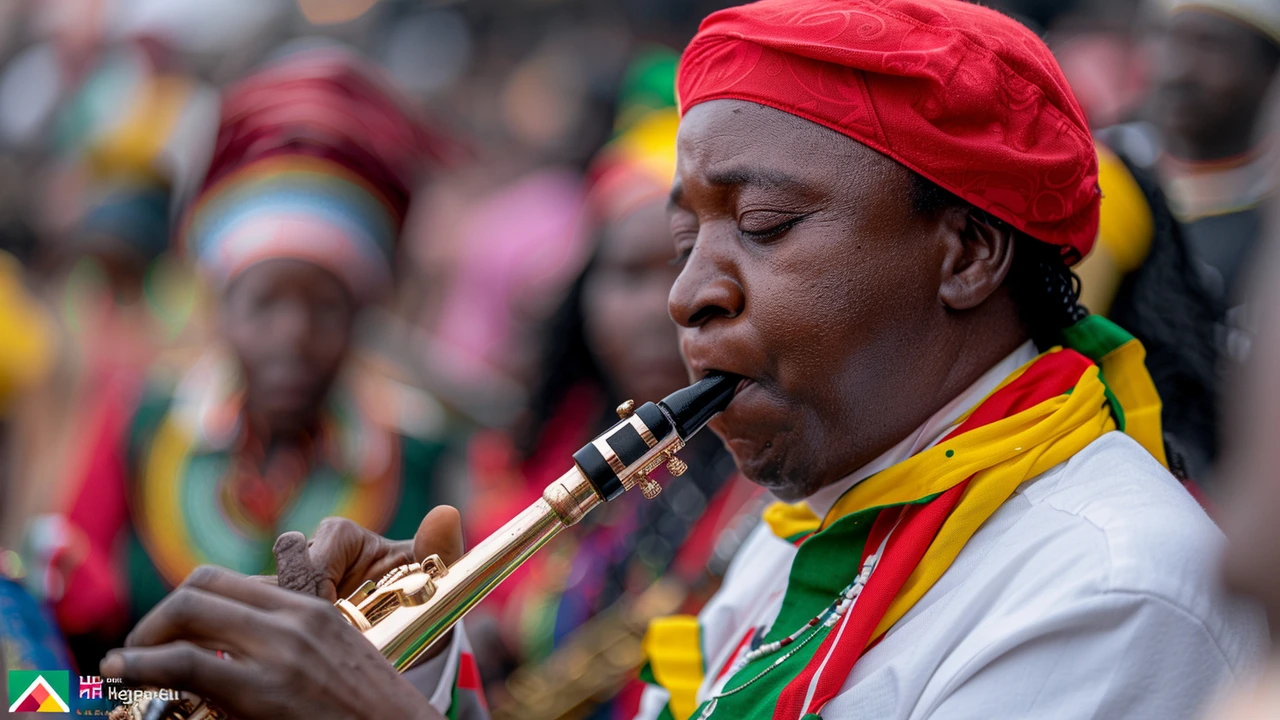
Conclusion
In the vibrant political landscape of South Africa, the upcoming elections promise to be a defining moment. With a rich tapestry of parties, each bringing its unique perspective and solutions, voters are faced with a significant choice. Whether they opt to support the established giants or place their hopes in the emerging contenders, the outcome will shape the nation’s future direction. Understanding the diverse array of parties and their platforms is crucial for South Africans as they prepare to cast their votes and steer their country toward a brighter future.

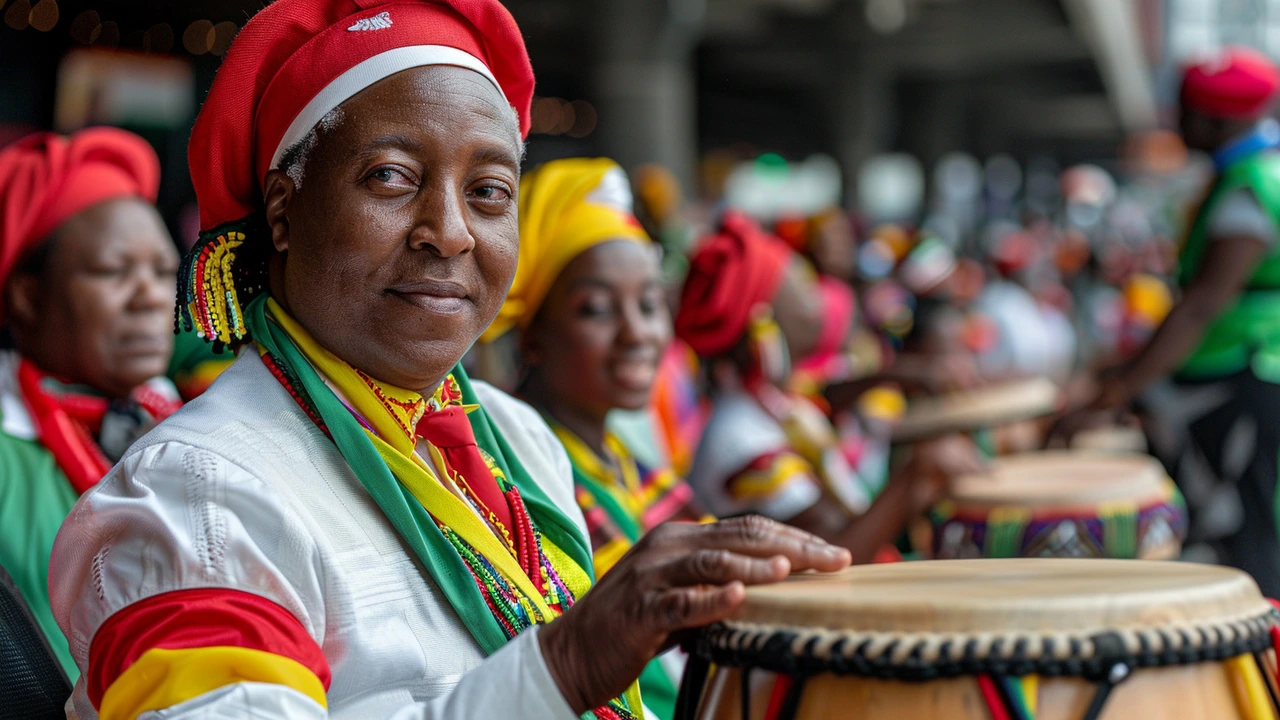
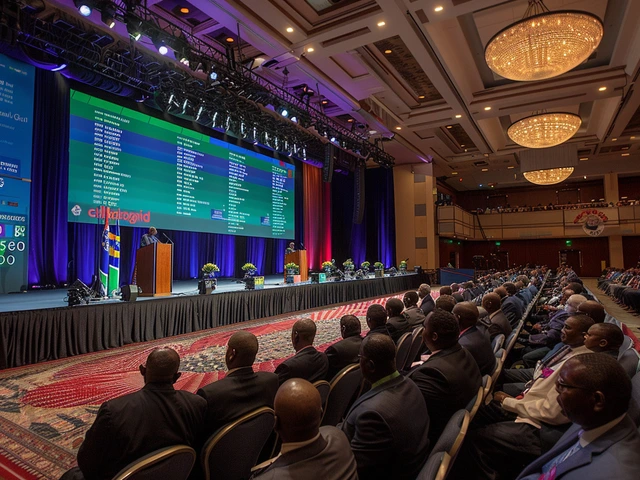
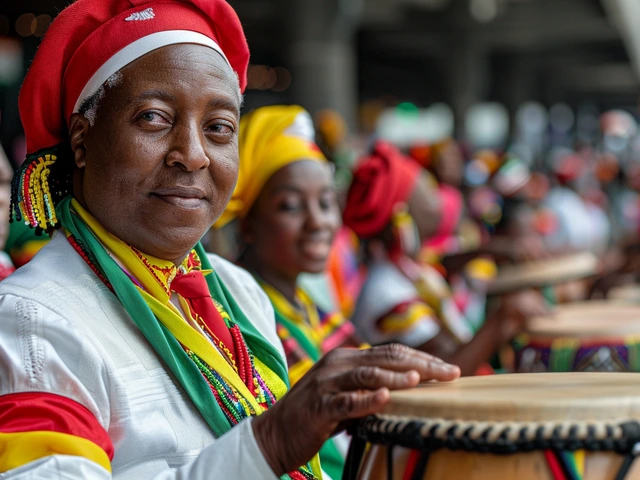
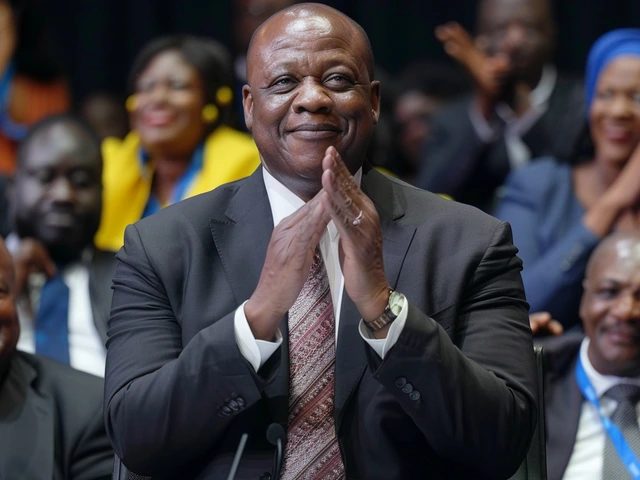
Comments
Well, after wading through that sea of party promises, I can't help but feel the election mood is as turbulent as a summer storm in Johannesburg.
The ANC's legacy, while historic, seems to be drowning in scandal, and the DA's polished veneer barely masks its own identity crisis.
Meanwhile, the EFF thunders on like a rebellious punk band, demanding radical change with a soundtrack of land reform anthems.
And then there's the MK Party, parachuting in with Zuma's name like a plot twist nobody asked for.
In short, South Africa's political theater is about to deliver a blockbuster season, and we're all stuck with front‑row tickets whether we like it or not.
Honestly, all these parties sound like the same old menu with a different garnish.
When you examine the intricate tapestry of South African politics, you quickly realize that each party is not merely a collection of policies but an embodiment of competing historical narratives.
The ANC, long heralded as the liberation beacon, now grapples with an identity crisis that mirrors the paradox of a hero turned bureaucrat.
Its relentless entanglement in corruption scandals serves as a cautionary tale that power, when left unchecked, corrodes the very foundations it once built.
Conversely, the Democratic Alliance projects an image of technocratic competence, yet its urban‑centric agenda often overlooks the rural disenfranchisement that fuels national discontent.
One could argue that the DA's governance record in the Western Cape is a microcosm of what could be achieved on a national scale, provided they can shed their elitist aura.
The Economic Freedom Fighters, under Malema's flamboyant leadership, embraces a radical economic doctrine that borders on revolutionary populism, promising land expropriation without compensation and nationalization of key industries.
While their fiery rhetoric electrifies a segment of the youth, it simultaneously alienates investors and perpetuates a cycle of economic instability that the country can ill afford.
MK Party's sudden ascent, buoyed by Jacob Zuma's contentious legacy, illustrates the enduring power of personal charisma in shaping electoral fortunes, regardless of policy depth.
Zuma's involvement is less a strategic maneuver than a nostalgic gambit that may well backfire as voters grow weary of recycled scandals.
The Inkatha Freedom Party, though diminished, still clings to federalist principles that underscore the necessity of devolving authority to accommodate South Africa's diverse cultural mosaic.
Meanwhile, smaller entities like the Freedom Front Plus and the African Christian Democratic Party inject niche ideological flavors that, while limited in electoral weight, enrich the democratic discourse.
ActionSA's business‑oriented platform attempts to bridge the gap between governance and market efficiency, a synthesis that could be vital for reviving stagnating growth.
However, without addressing the deep‑seated socioeconomic inequities, any market‑centric reforms risk being perceived as hollow technocratic solutions.
Ultimately, the electoral landscape resembles a chessboard where each party maneuvers for positional advantage, anticipating not just voter sentiment but also the strategic moves of its rivals.
In this high‑stakes game, the electorate's ultimate power lies in discarding nostalgic loyalties and demanding concrete, accountable governance that can steer South Africa toward a sustainable future.
While the eloquent prose of the preceding comment paints a grand picture, the reality on the ground remains stubbornly pragmatic.
South Africa's electorate is not merely swayed by rhetorical fireworks; they respond to tangible service delivery and economic upliftment.
The ANC's historic gravitas does not guarantee votes when municipalities are plagued by water crises and electricity load‑shedding.
Similarly, the DA's emphasis on fiscal prudence must translate into jobs for the unemployed youth, or it risks being dismissed as elitist technocracy.
The EFF's radical proposals, though sensational, could destabilize investor confidence, a factor the average voter cannot ignore.
Ultimately, the balance of power will hinge on which party can convincingly merge ideology with practical governance.
Dearest fellow observers, the saga unfolding before us is nothing short of a tragic opera, each movement laden with hopeful overtures and devastating diminuendos.
One cannot help but lament the perpetual dance between lofty aspirations and the crushing weight of bureaucratic inertia.
Yet, amid this melancholic concerto, there flickers a candle of perseverance that refuses to be snuffed out.
May we all bear witness to a crescendo of genuine reform that transcends mere performance.
It might be helpful to remember that the electoral system in South Africa operates on a proportional representation basis, meaning that even smaller parties can secure seats if they cross the threshold.
This encourages a broader spectrum of voices, which can be advantageous for policy diversity.
The ANC's dominance has historically been tied to its liberation credentials, but recent polls suggest a shift toward issue‑based voting.
Voters concerned with service delivery often gravitate toward parties like the DA or ActionSA that emphasize governance reforms.
Keeping an eye on voter turnout trends in urban versus rural districts could provide additional insight into how these dynamics might play out.
Interesting how each party tries to claim the moral high ground while still chasing the same pot of votes.
One could argue that the political discourse is a kaleidoscope of contradictions, each hue reflecting the aspirations and anxieties of a nation still healing from past wounds.
Yet, the persistent narrative of corruption seems to recede only when the spotlight shifts, suggesting a collective amnesia that prefers comfort over accountability.
In this theatre, the EFF's radicalism serves as both a catalyst and a mirror, exposing the fragility of established structures while simultaneously risking further fragmentation.
Perhaps the most paradoxical element is the electorate's simultaneous yearning for stability and their appetite for transformative change.
Such contradictions are the very engine of democratic evolution, however messy it may appear.
Ah, the grand tapestry of South African politics, where every thread is woven with equal parts hope and hubris, and every stitch seems to echo the cries of a nation yearning for redemption, yet shackled by its own past!
Would one not say that the ANC, once the beacon of liberation, now finds itself navigating murky waters, its once‑bright lantern dimmed by scandals that flicker like dying candles in a storm?
And the DA, ever so polished, with its technocratic gleam, appears to some as the embodiment of order, yet to others it feels like a sterile veneer over deep‑seated inequities!
The EFF, with its thunderous rhetoric, storm‑sweeps the stage, demanding radical shifts, while the MK Party waltzes in with Zuma’s name, a nostalgic melody that both comforts and divides!
All the while, the smaller parties whisper in the shadows, each hoping to be heard above the cacophony, each promising a slice of the promised land!
Look, everyone’s playing political chess, but most are just moving pawns and forgetting the king’s safety.
Prime time drama aside, the real issue is whether any of these parties can actually deliver on basics like water and jobs.
Listen up, folks! The political arena is a battlefield, and those who shy away from confronting the hard truths will never see progress.
If we keep tiptoeing around the failings of every party, we’ll remain stuck in a perpetual loop of disappointment.
Stand up, demand accountability, and let’s push for a future where governance actually serves the people, not the elites.
Dear colleagues, as we analyze the forthcoming elections, it is essential to adopt a balanced perspective that acknowledges both the achievements and the shortcomings of each political entity.
While the ANC’s historical contributions remain undeniable, contemporary challenges demand a renewed focus on transparency and service delivery.
The DA’s governance record, particularly in the Western Cape, offers valuable insights into effective municipal management.
Nevertheless, inclusivity must be at the forefront of any policy framework to ensure equitable progress for all citizens.
In conclusion, a constructive dialogue grounded in factual assessment will greatly benefit our collective understanding of the evolving political landscape.
From a cultural standpoint, South Africa's political spectrum mirrors the continent's rich tapestry of identities, each party representing a distinct thread in the collective fabric.
The ANC carries the weight of liberation history, yet its present performance must be judged on current impact, not past laurels.
The DA's emphasis on liberal democracy resonates with global standards, but its challenge lies in bridging the urban‑rural divide.
Meanwhile, the EFF channels a populist surge that demands economic rebalancing, a narrative that cannot be dismissed as mere rhetoric.
Ultimately, the electorate's role is to synthesize these divergent visions into a cohesive mandate that propels the nation forward.
Exciting times ahead! 🎉 Let’s hope the right leaders rise and bring real change! 😊
Analyzing the current political climate requires an interdisciplinary approach that incorporates both macro‑economic indicators and micro‑level sociopolitical dynamics.
The empirical data suggests that voter behavior is heavily influenced by service delivery metrics, particularly in municipalities plagued by infrastructure deficits.
From a governance theory perspective, the efficacy of party platforms is contingent upon their capacity to implement policy within the constraints of fiscal capacity and institutional coherence.
Consequently, parties that can articulate robust, evidence‑based strategies stand a higher probability of securing electoral legitimacy.
Moreover, the interplay between historical legitimacy and contemporary performance creates a nuanced voter calculus that cannot be oversimplified.
In sum, the upcoming elections present a pivotal juncture wherein strategic alignment of policy, implementation capability, and public trust will determine the trajectory of national development.